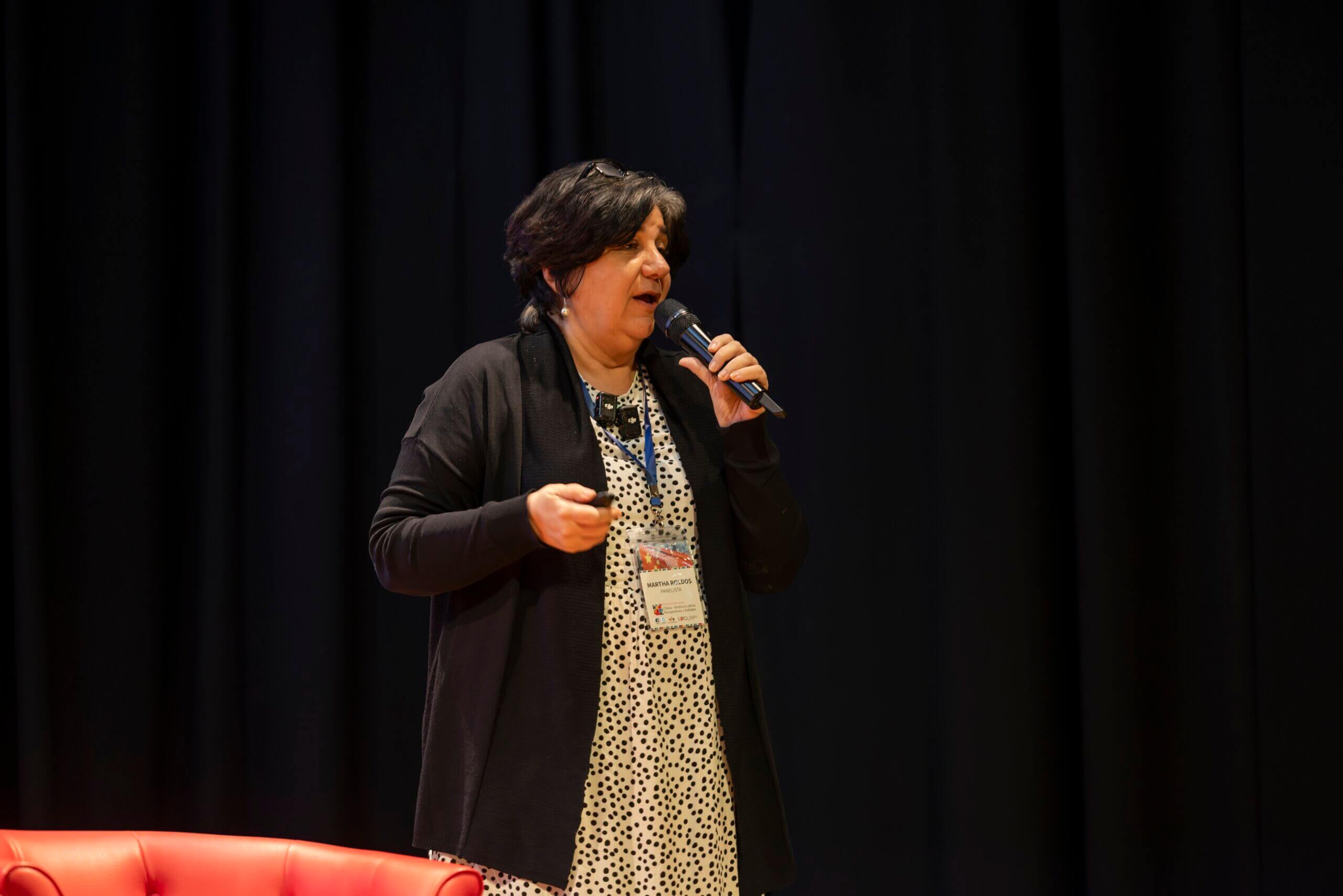Governance, Influence, and Politics
The eighth panel of the International Forum China – Latin America: Perspectives and Debates brought together experts from Ecuador, Hong Kong, and the United States to examine the impact of corruption, national security, and transnational crime networks on China–Latin America relations. From critical and multidisciplinary perspectives, the presentations explored how ties with the People’s Republic of China can affect democratic quality, institutional sovereignty, and regional security.
Martha Roldós (Fundación Mil Hojas, Ecuador) presented the lecture “The Impact of Corruption on Democratic Governance.” Her talk focused on the institutional weakening in Ecuador resulting from Chinese-origin loans and investments. Roldós argued that these financial flows—especially during the Rafael Correa administration—occurred in opaque contexts that enabled illegal practices and deepened the country’s institutional fragility. She also pointed out the current contradiction: Chinese companies that failed to meet contractual obligations are now suing the Ecuadorian state, disregarding their past involvement in corruption and misconduct. The presentation called for a reassessment of relations with China, prioritizing transparency, institutional strengthening, and democratic governance.
Iverson Ng (Tallinn University, Hong Kong) presented “PRC’s National Security Agenda in Hong Kong,” focusing on the extraterritorial effects of Beijing’s 2020 National Security Law. Through an analysis of the legal linkages between Hong Kong and mainland China, Ng explored how the “One Country, Two Systems” model has eroded and how the international community has responded. His presentation also examined Hong Kong’s emerging paradiplomatic status and the broader implications of the law for freedom of expression beyond the borders of the Special Administrative Region.
Leland Lazarus (Florida International University, United States) delivered the presentation “Expanding Influence of Chinese Transnational Criminal Networks in Latin America and the Caribbean (LAC).” From a regional security perspective, he analyzed the growing involvement of Chinese criminal networks in activities such as fentanyl trafficking, money laundering, wildlife smuggling, and irregular migration. While noting there is no direct evidence of state involvement, Lazarus emphasized that weak oversight and corruption in both China and Latin America have facilitated the expansion of these networks. He proposed a more nuanced approach to cooperation among China, Latin America, and the United States, involving diplomatic platforms, technological tools, and greater multilateral collaboration to address these threats.
Together, the panel’s presentations offered critical insights into governance, sovereignty, and security challenges in the region, and underscored the need for China–Latin America relations grounded in democratic principles and institutional resilience.
*The presentations by Iverson Ng and Leland Lazarus—part of Panel 8 of the China – Latin America Forum: Perspectives and Debates—are also available with Spanish subtitles.
Panelists:

Iverson Ng
Tallinn University (TBC)
Presentation: PRC’s National Security Agenda in Hong Kong

Leland Lazarus
Florida International University
Country: United States
Presentation: Expanding Influence of Chinese Transnational Criminal Networks in Latin America and the Caribbean (LAC)

Martha Roldós
Fundación Mil Hojas
Country: Ecuador
Presentation: The Impact of Corruption on Democratic Governance

